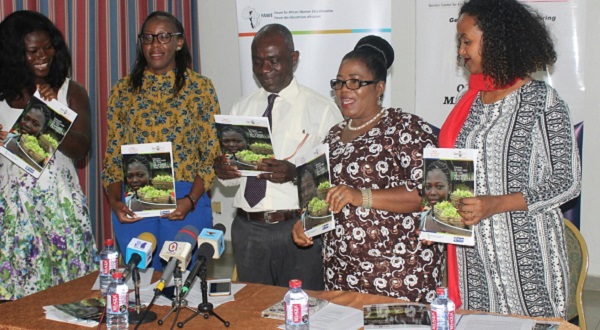From right: Sarah Tabit, Plan International, Dr. Comfort Asare, Frank Bodza, Programme Manager WiLDAF, Juliet Kimotho, Programme Coordinator Girls Advocacy Alliance, Kenya and Esther Tawiah
Ghana has scored high for taking steps to implement the Maputo Protocol on the Rights of women.
The country recorded 63.63 per cent and 70.58 per cent on rights of women to life, integrity and security of a person and economic and social welfare rights respectively.
The assessment was undertaken by the Gender Centre for Empowering Development (GenCED), in collaboration with the Girls Advocacy Alliance, Forum for African Women Educationalists and Plan International.
It analyzed Articles 4 & 13 of the Maputo Protocol and made recommendations to strengthen other areas.
The Articles were assessed based on norms and existing traditional practices that might limit the enjoyment of rights in provisions outlined.
The group used the participatory approach with key stakeholders to reach conclusions in the analysis.
Giving a background to the assessment, Esther Tawiah, Executive Director, GenCED, said her outfit has worked to domesticate some aspects of the protocol and taken action on the articles.
She mentioned that state parties have the responsibility to give periodic report on key actions and efforts towards achieving the targets set under the Protocol, adding that an assessment of the country was appropriate.
Dr. Comfort Asare, Director, Gender Department, commenting on the results, said there was more room for improvement for the country although Ghana has performed creditably in the implementation of the two Articles of the protocol.
“We see change but not what we want to see. We have done a lot, but we still need to do more if we want to get where we want to be,” she noted
She said government has instituted measures to ensure an enabling environment to guarantee the rights and economic wellbeing of women in the country.
Mrs. Asare urged young females to take advantage of government policies like free Senior High School (SHS) policy to become economically independent.
By Jamila Akweley Okertchiri .


